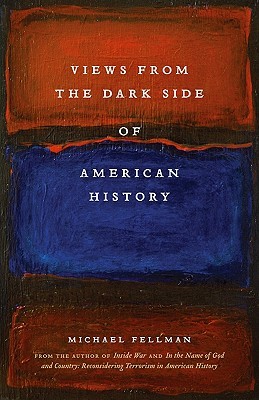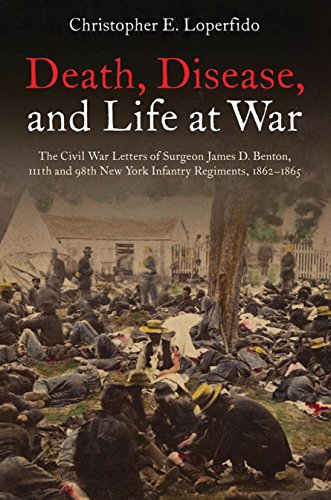Views from the Dark Side of American History by Michael Fellman. Louisisana State University Press, 2011. Paper, ISBN: 0807139025. $22.50.
 And there it was. The question I knew she would eventually ask, this undergraduate who writes for her campus newspaper. “So why did you become interested in the Civil War?”
And there it was. The question I knew she would eventually ask, this undergraduate who writes for her campus newspaper. “So why did you become interested in the Civil War?”
I have always dreaded this question, the one that well-meaning aunts and just-introduced strangers at cocktail parties always ask. I have always answered it as if the person had really been wondering “how” rather than “why.” And I did so now. I launched into my research tale, describing how I came upon ruins in Civil War letters and diaries …. Her eyes glazed over.
Why have I always hated this question? Why do I never answer it directly? Aren’t academics always delighted to talk about themselves? What am I so afraid of revealing? If such questions—and such a way to begin a book review—seem strange to you, then you have not yet read Michael Fellman’s new book, Views from the Dark Side of American History.
This book, as Fellman notes on its first page, grew “from a random discovery connected to a chance encounter” but the intellectual autobiography that he constructs from this point on is anything but random (1). There has always been political purpose to what Fellman has written during his long career and this text is no exception. It is a call for historians to abandon what he calls the “nonexistent code of impersonal objectivity” and to embrace “one’s own inevitable biases and subjectivity,” which can “illuminate one’s work through validating rather than suspecting imagination” (4, 5). Historians writing with a full understanding of their personal investments and animosities would produce, in Fellman’s view, “truly engaged history writing” (6); they would constitute a new intellectual constituency of irreverent, freethinking scholars.
Views from the Dark Side puts this vision into practice. Fellman has chosen six essays that he has, sometimes literally but mostly metaphorically, found in the bottom drawer of his desk. Almost all of them were once conference papers, a commonality that Fellman does not comment upon. This means that the interest in them is not the intensive research and dense footnotes, but the larger frameworks and the ideas he was trying out, often for the first time. Most are intentionally controversial, almost combative: the talk he gave at the Douglas Southall Freeman Conference in Richmond in 2002, in which he argued that Robert E. Lee was the “spiritual avatar of southern white supremacist nationalism,” is a notable example (126). Fellman prefaces each essay with a discussion of its genesis; another attribute they share is that most of these papers were requested of him. One wonders about the significance of this—is it somehow easier to be controversial in response to an invitation, rather than to start the rabble-rousing spontaneously? Fellman concludes each chapter with an analysis of the piece, its reception, and his reflections about its arguments and the personal circumstances that drove them.
Fellman reveals several personal circumstances along the way, including tenure battles, marriages and divorces, episodes of depression, friendships and “enemyships.” But the most important circumstances that have driven Fellman’s scholarly work coalesce around three elements of his identity: his “Jewishness,” his “skeptical activism” during the 1960s, and his many years living and working in Canada. All three have given him what he calls an “offshore perspective,” which becomes a useful “tool of constructive engagement” with U.S. history, and especially its tradition of state-sanctioned violence, which Fellman has explored in both Inside War and In the Name of God and Country (9, 10). These elements of his personal history and experience impelled his interest in Jewish historians researching African American history (Chapter 2), the “northeastern linguistic imperialism” of Mark Twain’s southwestern humor tales (Chapter 4), the aforementioned deconstruction of the mighty myth of Robert E. Lee (Chapter 5), and the contention that Americans fight wars “in just as filthy a fashion as do other peoples” (Chapter 6).
All of this is entertaining to read and Fellman is a thoughtful analyst (and often, a kind of admiring critic) of his own motives, biases, and emotions. He does not suggest that ethnicity, family, and geographic location are inevitable forces in shaping scholarly interests—but he does not go out of his way to argue against this, either. And some readers might balk at the notion that the personal must always be political, especially in an activist sense. But even these objections prove that Views from the Dark Side has succeeded in one of its aims, which is not merely to provoke but to encourage the reader to reflect on the nature of that provocation. As for me, I plan to heed Fellman’s call to action. Why am I interested in the Civil War? I’m thinking about it.
Megan Kate Nelson (Harvard University), who wrote for the spring 2012 issue of The Civil War Monitor, is most recently the author of Ruin Nation: Destruction and the American Civil War (2012).
